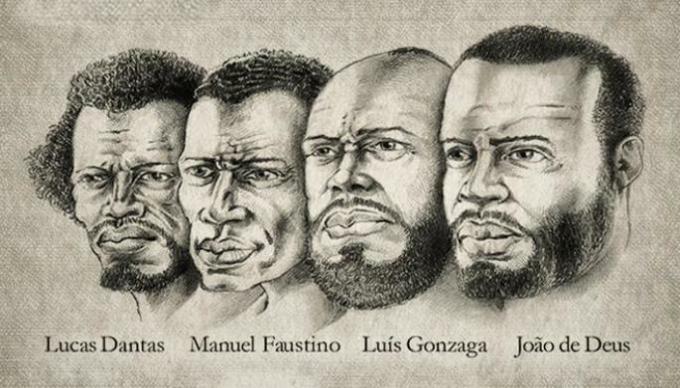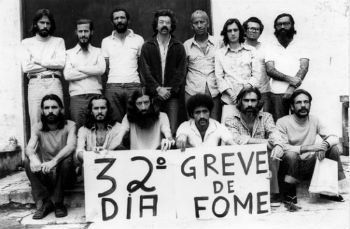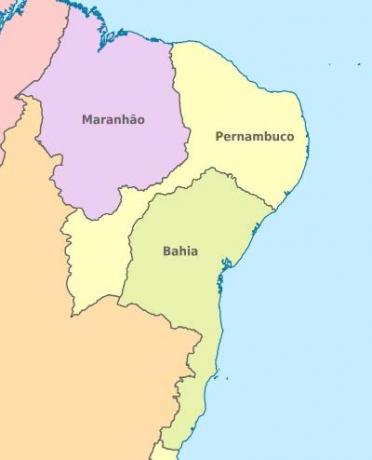From 1654, the definitive expulsion of the Dutch from Pernambuco caused a great change in the economic scenario of that region. The large sugar producers who previously benefited from Dutch investments now lived a crisis arising from the fall in sugar on the international market and competition from sugar produced in the Antilles. However, these planters still had control of the local political scene through the power exercised in the municipal council of Olinda.
On the other hand, Recife – neighboring region and politically subordinate to Olinda – was considered the main economic development pole of Pernambuco. The city's trade brought great profits to the Portuguese, who controlled the region's commercial activity. This favorable position was motivated by the various improvements undertaken in the city with the Dutch colonization, which had transformed the city into its main administrative center.
Over time, the divergence of the political and economic situation between farmers in Olinda and Portuguese traders in Recife created local tension. Initially, the planters of Olinda, experiencing serious difficulties in investing in the sugar business, asked for several loans from Portuguese traders in Recife. However, after the outbreak of the sugar crisis, many of the planters ended up not being able to honor their commitments.
At the same time, the complicated economic situation in Olinda was added to the complete scrapping of the city, which suffered from the wars that expelled the Dutch. With that, the city council of Olinda decided to increase taxes throughout the region, including Recife, so that it would be possible to recover the Pernambuco administrative center. Dissatisfied, the Portuguese merchants, pejoratively called "peddlers", sought to free themselves from the political dominance of Olinda.
To this end, Recife's merchants managed to elevate their village to the status of a village, thus having the right to form an autonomous city council. The measure left the landowners of Olinda very apprehensive, as they feared that in this way the Portuguese merchants had the means to demand immediate payment of the debts they had to receive. Thus, the definition of the borders of the two municipalities served as a trigger for the conflict.
The war began in 1710, with the victory of the Olindians who managed to invade and control the new city in Pernambuco. Soon after, the people from Recife managed to regain control of their city in a military reaction supported by political authorities from other captaincies. The prolongation of the war was only interrupted when the Portuguese Crown indicated, in 1711, the appointment of a new ruler whose main mission would be to establish an end to the conflict.
The chosen one for this task was Félix José de Mendonça, who supported the Portuguese peddlers and stipulated the arrest of all the landowners involved in the war. In addition, in order to avoid future conflicts, the new governor of Pernambuco decided to transfer administration to each of the cities every six months. In this way, there would be no reason for a city to be politically favored by Félix José.
Do not stop now... There's more after the advertising ;)
By Rainer Sousa
Master in History
See more!:
Beckman's Revolt
The War of Emboabas
Would you like to reference this text in a school or academic work? Look:
SOUSA, Rainer Gonçalves. "War of the Peddlers"; Brazil School. Available in: https://brasilescola.uol.com.br/historiab/guerra-dos-mascates.htm. Accessed on June 27, 2021.



